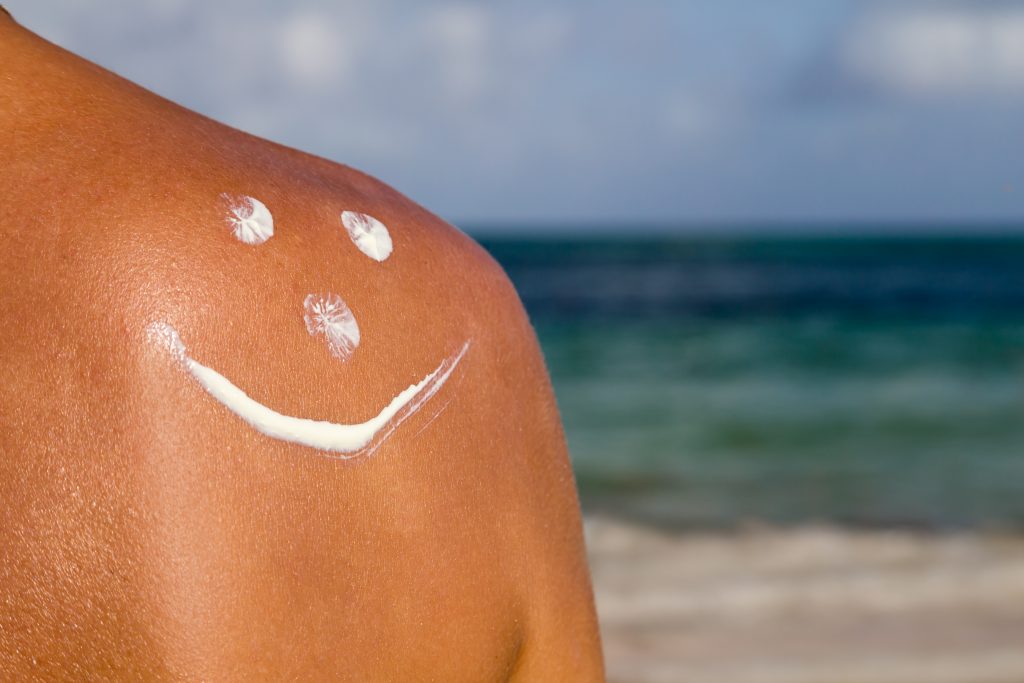What’s the Best Sunscreen for your Skin?
Sunburn is known to increase the chance of getting skin cancer and it does not only occur whilst travelling. Even in the UK when it is cloudy, you can burn. There isn’t a healthy or safe technique to get a tan. No amount of tanning can shield your skin from the damaging effects of the sun. It’s important to strive for a balance between receiving adequate vitamin D from sunlight and sun protection. Keep reading to find out the best sunscreen for oily skin.
What is the best way to apply sunscreen?
The majority of people don’t use adequate sunscreen.
Adults should strive to apply around:
– 2 teaspoons of sunscreen if you’re only covering your head, neck, and arms
– 2 tablespoons if you are wearing a swimsuit that covers your full body
Sunscreen’s level of protection is diminished if it is applied too thinly.
You can use a sunscreen that has a higher SPF if you’re concerned that you’re not applying sufficient SPF30.
Sunscreen must be reapplied twice if you intend to spend a prolonged period of time in the sun which can increase the danger of burning:
– Apply 30 minutes prior to going out
– And just before leaving
All exposed skin should be covered with sunscreen, including the face, head, neck and ears if you have thin or no hair. However, wearing a wide-brimmed hat is preferable.
It is important to reapply sunscreen frequently, liberally, and in accordance with the manufacturer’s recommendations.
Even if it is “water resistant,” you should still use it right away after swimming, as well as after sweating, towel drying or if it has rubbed off. Additionally, since the sun can dry off sunscreen on your skin, it’s advised to reapply sunscreen every two hours.
Physical Vs. Chemical: Which sunscreen is best?
While both physical and chemical sunscreens can be effective for blocking the sun’s UV rays, sun blocks that contain numerous chemical ingredients can cause skin irritation and redness. Sunscreens that count Zinc Oxide and Titanium Oxide as their active ingredients offer the protection you need without subjecting your skin to harsh side effects.

Can you apply sunscreen to oily skin?
The sebaceous glands behind your hair follicles are hyperactive and create more sebum when you have oily skin. This may lead you to believe that if you have oily skin, you shouldn’t apply sunscreen. However, all skin types require sunscreen.
How do I know which SPF I need when it comes to sunscreen for oily skin?
A moisturiser or cosmetics with an SPF 15 base in it is suitable for minimal sun exposure. For other circumstances, though, you’ll need to think about the type of outdoor activity you’ll be doing in order to choose the right sunscreen. You can choose from a wide variety of sunscreens that are available, including:
Waterproof sunscreen
Sunscreen that is water-resistant can provide effective defence for aquatic sports.
Spray sunscreen
This kind of sunscreen is recommended, particularly among parents of children that can be restless.
Broad-spectrum
The term “broad-spectrum” refers to a sunscreen that blocks both UVA and UVB radiation. Choosing a broad-spectrum sunscreen is always a smart move.
Which sunscreen for oily skin is the best?
You probably have oily skin if it feels greasy and appears shiny some hours after washing your face. The last thing you would want to do is use skin care products to make your skin even oilier. Finding the correct products that won’t make your skin oilier and cause breakouts is the key.
Call us today to get your suitable sun protection.
